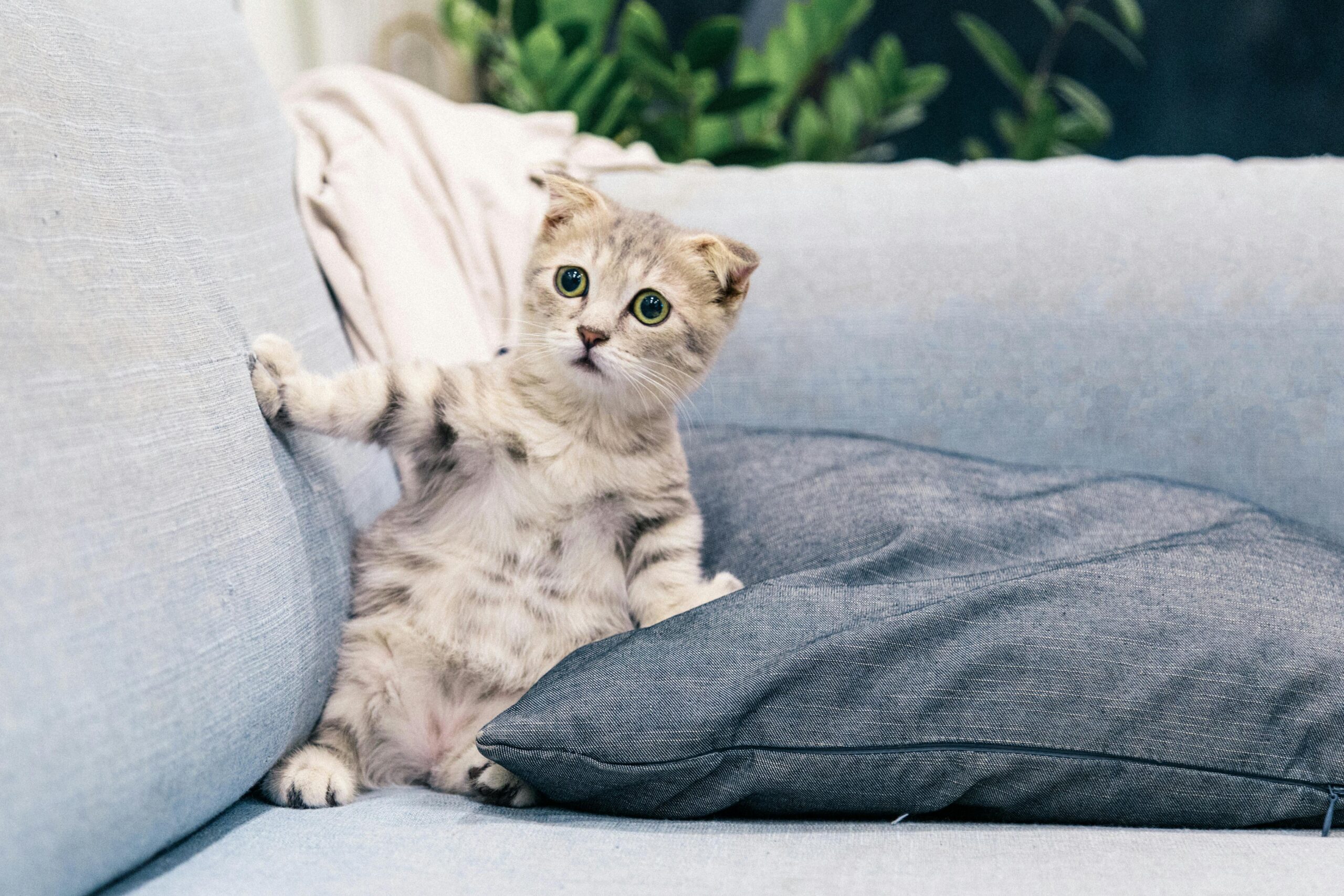Cats are very beautiful and adorable companions that have lived with humans for over 10,ooo years.
Their playful antics have endeared them to humans making them one of human’s best of friends.
They have also helped in reducing the population of mice and insects in our households.
However, their co-existence with humans just like every other human relationship has its pros.
Some domesticated cats exhibit certain undesirable behaviors such as chewing and destroying furniture, and wires, staining paints, stopping the use of their litter, etc.
Fortunately, these behaviors can be easily corrected especially in kittens.
The method of disciplining cats is very different from other domesticated pets such as dogs or birds, etc.
Cats are very unique animals, any discipline measure has to be tailored specifically to their nature and individual so as not to destroy your relationship with your feline friend.
Here are what to do and not to do when disciplining your feline friend.
1. Avoid Corporal Punishment:
Even if you are frustrated about their behavior, never physically reprimand a cat.
Do not correct a cat by hitting, striking, or yelling at them.
They are lovely creatures that should be shown love, care, and empathy at all times.
The use of physical means to correct a cat’s misbehavior is not responsible and should never be encouraged.
It can lead to aggression and possible confrontation by a cat in extreme cases.
It can also lead to the destruction of pet bonds between you and the cat and the development of anxiety and fear and they can be easily startled by your presence.
Cats are very sensitive creatures especially to sound due to their keen sense of hearing, when you yell at them they can be easily startled causing them to jump which can cause injuries and lead to more problems.
2. Study The Cause:
Studying or observing the root cause of why your cat might be behaving in a certain way can help you address the issue faster and better.
Some cats Exhibit certain habits when they are lonely, bored, angry, fearful, hungry, injured, sick or playful.
Understanding your cat’s usual behavior, reflexes, and deviations can easily help you to know why they are behaving differently.
In most cases, when a cat’s litter is dirty or smelling, they will avoid continuous use and this can lead to indiscriminate elimination of body waste.
Sometimes, they can also avoid litter if they have to use the same litter to urinate and defecate.
The remedy to this is to always have it clean without any smell and also to have two different litter for urinating and defecating.
You can read more here on why a cat will discontinue the use of litter.
3. Provide Alternatives To Redirect Behavior:
Cats just like little children can easily stop certain antics when provided with other suitable alternatives.
If your pet is always scratching valuable furniture, you can provide a scratching post as a way of redirecting their antics.
If they are always chewing wires, you can provide them with toys they can play with.
They might not use a new litter due to personal preference, to correct this you have to study their preference before making any new purchase.
Some behaviors are usually a result of boredom and instead of physical confrontations, you can re-direct it by providing them with fun-filled activities like socializing with other pets.
4. Use Of Positive Enforcement:
Cats might not be easily trainable just like dogs but they can learn new things.
They can also sense and feel human emotions to some degree.
When a cat acts right, you should always reinforce this behavior by praising them and showing affection using treats.
When you do this consistently while exercising patience, a cat will learn to continue with the behavior until it becomes a habit.
You should also learn to know what your cat loves most ranging from special food to toys or your time and attention and use it
as a motivator whenever your cat acts right.
Motivations and treats should mostly be used during training.
5. Do Not Make Loud Noises:
Cats are very sensitive to loud noises which has been used by some cat owners as a way to punish their pets.
This method is cruel and should not be encouraged as it will make your cat easily startled and fearful of you.
They won’t get the message you are trying to pass rather they will avoid your presence while continuing with their bad behavior.
6. Socialize Your Cat:
Cats are solitary animals but domesticated cats are not independent animals.
They should not be kept in isolation, especially not from other cats. Cats that are kept in isolation exhibit certain behavioral issues when suddenly exposed to other animals.
They are easily startled, and fearful and might be unnecessarily aggressive towards other animals leading to confrontations.
Cats should be socialized early with other cats, animals, and humans while they are kittens.
7. Consult With A Veterinarian:

Sudden behavioral changes in a cat are the effect of underlying health issues.
Health issues such as kidney disease can lead to an increase in drinking and urination.
In some extreme cases, if the litter is not within reach during the sudden urge to urinate, they might urinate discriminately.
Other health issues such as Hyperthyroidism can cause increased activeness in cats, restlessness, and change in appetite
It is your duty as a pet owner to always observe your cat for any abnormal behavior and consult right away with a veterinarian to ascertain if the behavioral change is a result of health issues.
A thorough diagnosis will have to be carried out to identify the issues and it is best advised to carry out this procedure on time.

